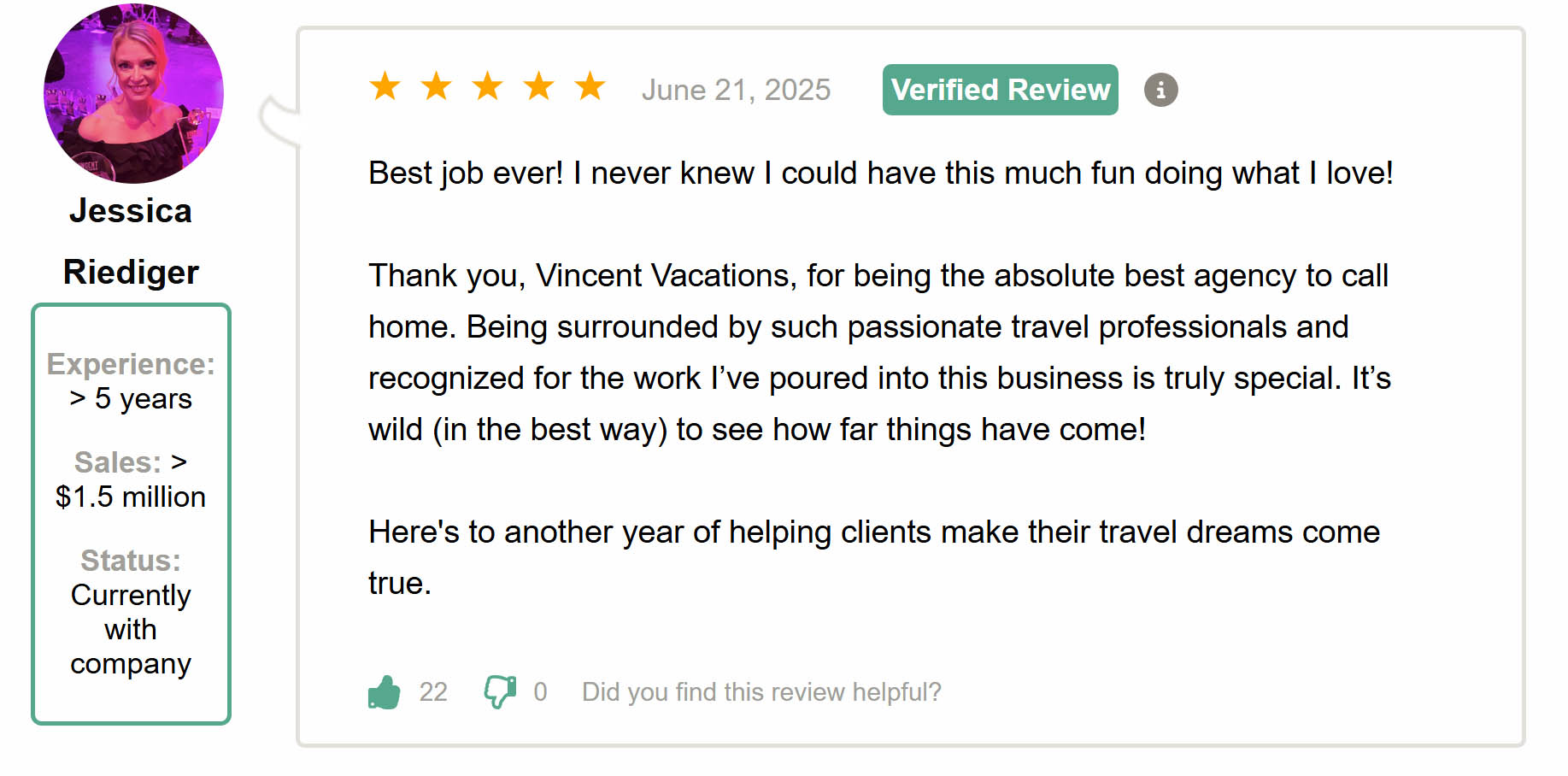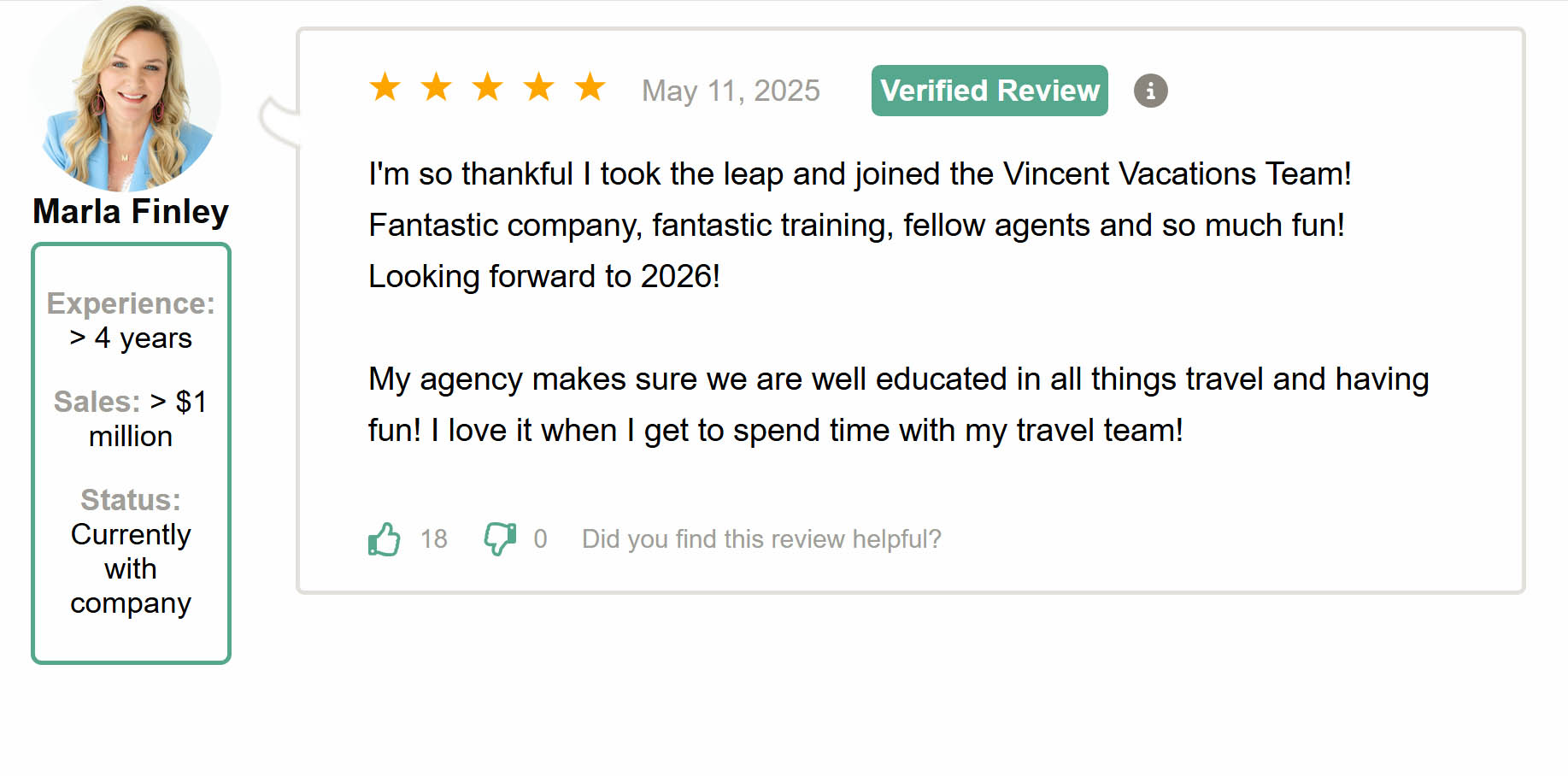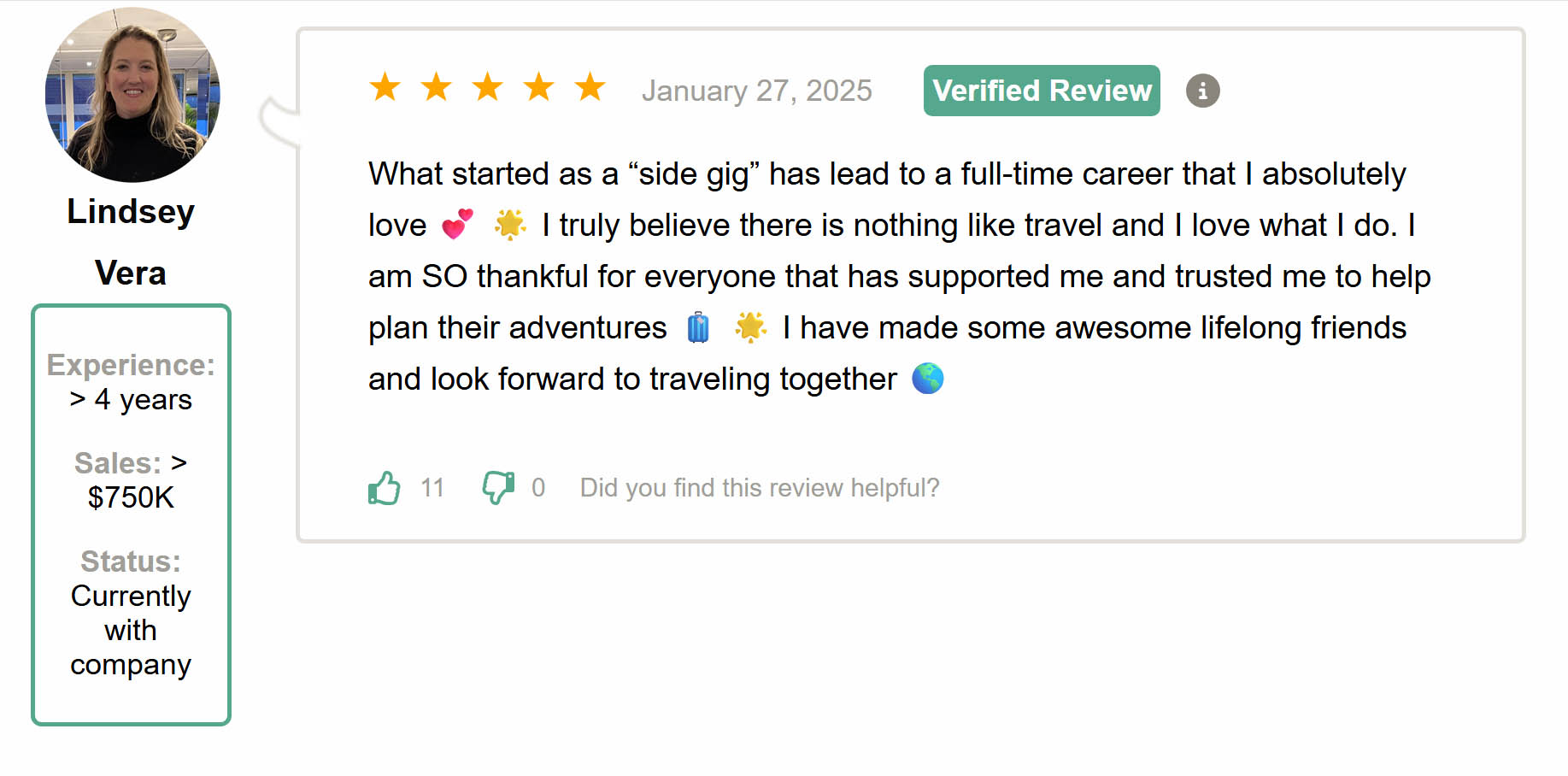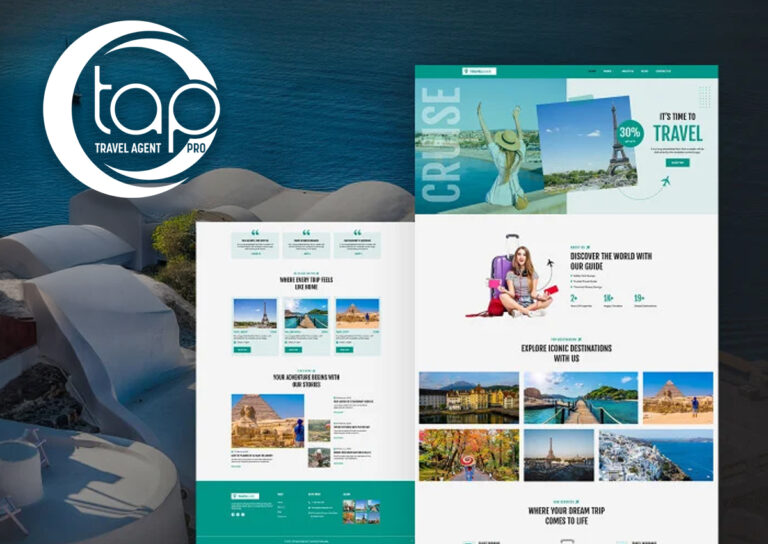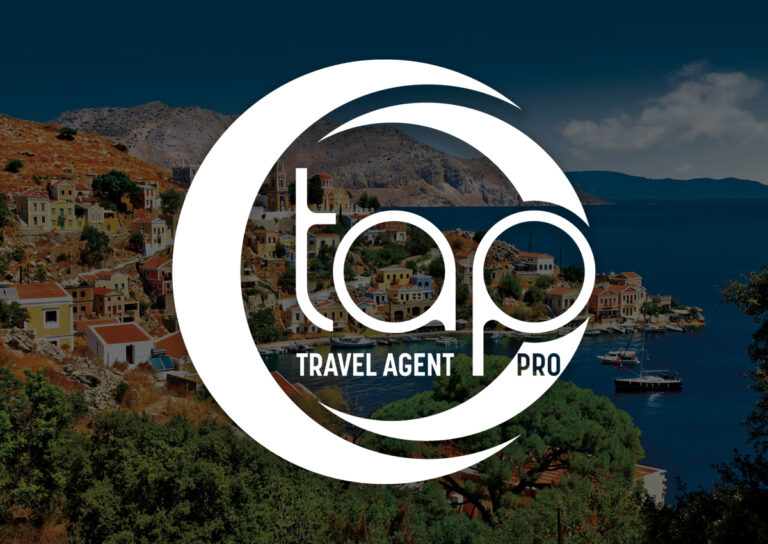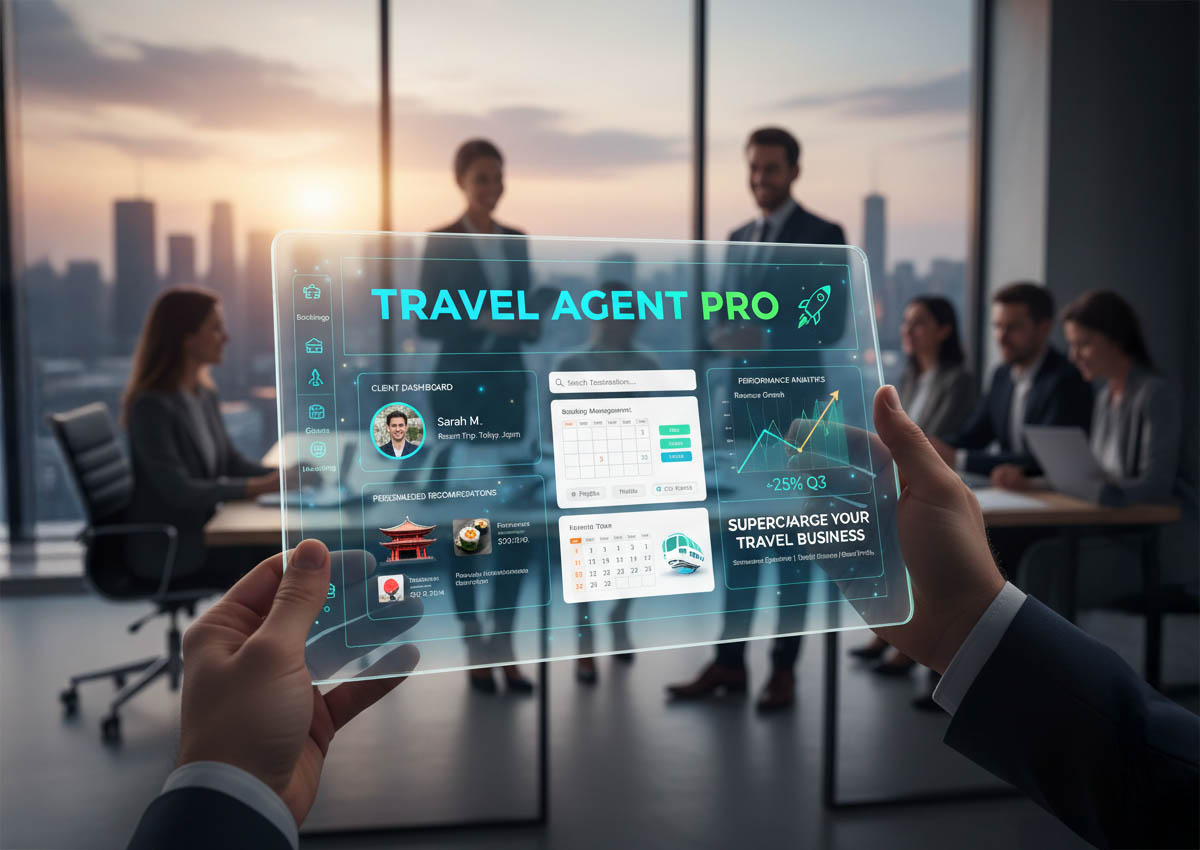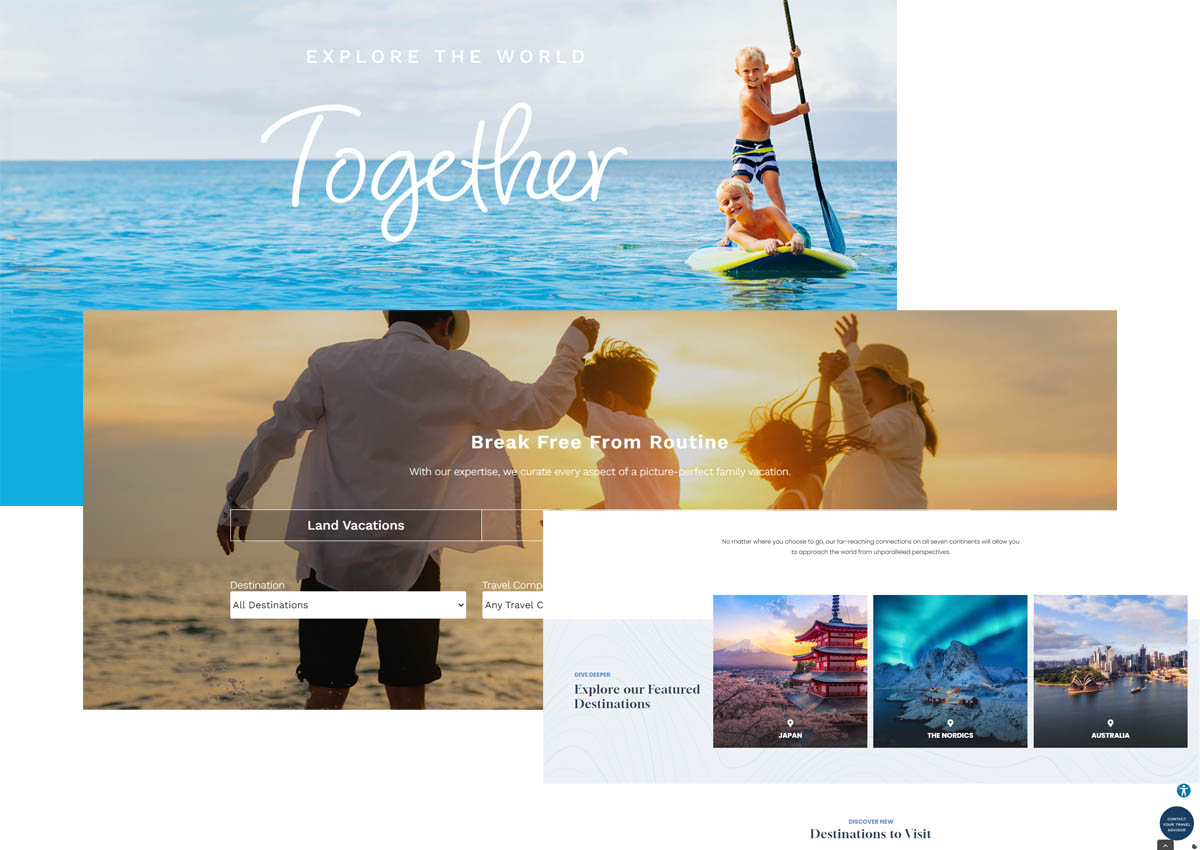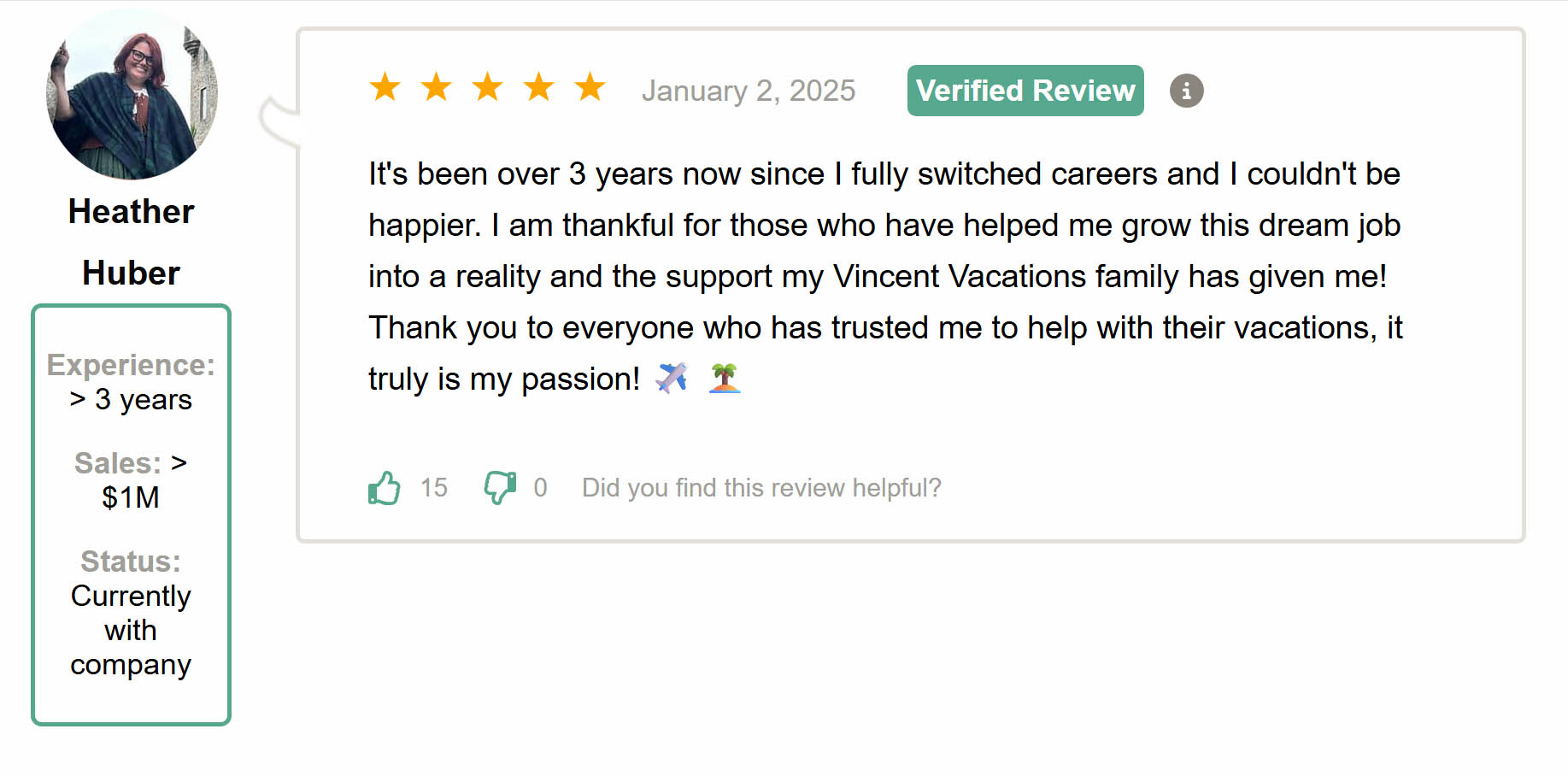Category :
GeneralStarting Small: A Friendly Guide to Group Bookings
To learn more techniques and how to create and grow your own travel business, sign-up to become a member today!

Ready to kick off your group travel journey?
Starting with small groups can be the easiest and most rewarding way to build your confidence as a travel agent. Here’s how and why diving into the world of group bookings at a modest pace can set you up for big success down the road.
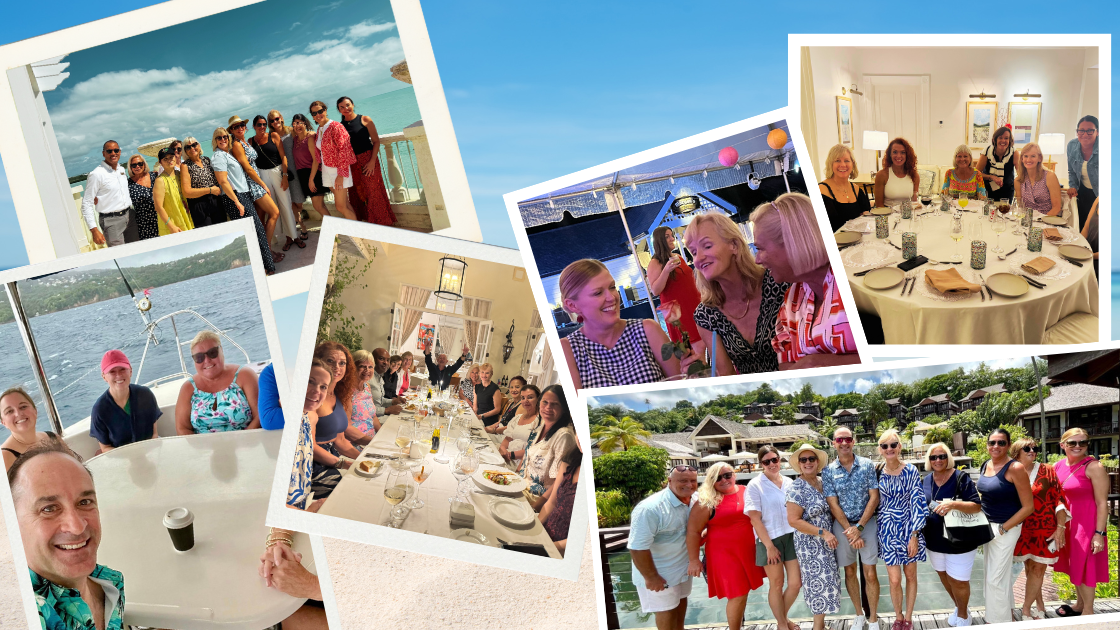
Ready to Elevate Your Travel Business?
Join Vincent Vacations, the host agency designed to help you succeed. Discover why top agents choose us:
- Membership plans offering up to 100% commission.
- Proud member of the prestigious Signature Travel Network.
- Direct access to top tier preferred suppliers.
- Ongoing education, exclusive FAM trips, and much more.

How and Why to Start with Small Groups
Jumping straight into organizing a 50-person tour can be overwhelming. As one industry playbook explains, managing travel for 8 people versus 40 or 100 is a "big difference" – larger groups bring more logistics, varied personalities, and a greater need for structure. By starting with a small group, you can practice your systems and fine-tune your planning without getting overwhelmed. It’s like using training wheels for your group travel business. You’ll get to master the experience one traveler at a time, and grow from there!.
For example, aim to complete a trip with just 6–10 travelers and include one new element (like rooming lists or leading a group excursion). This focused practice trip will help you gain confidence (and a great case study!) before you tackle something bigger. It’s a hands-on way to build real experience with manageable stakes.

The Benefits of Starting Small
Small group trips come with some big perks. With fewer travelers, you often find it easier to gather people – multigenerational families, friends, or colleagues frequently want to travel together. In fact, existing social connections mean your first groups might already be partly built-in before you even start! Smaller groups also reduce your financial risk. Many tour suppliers even offer no-deposit contracts or more flexible terms when fewer spots are booked. This means you can lock in your bookings with little or no deposit, and adjust plans more easily.
- Easy to assemble: Friends and family trips often happen organically, so it’s not hard to get a few people on board.
- Lower risk, higher learning: With a small group, you spend less money up-front and make manageable mistakes, learning as you go.
- Simpler logistics: Coordinating flights, rooms, and activities for 8 people is much easier than for 50, allowing you to focus on service and details.

Leveraging Supplier Support
You’re not alone—many big travel suppliers love small groups just as much as big ones. Major cruise lines, tour companies, and hotels often have dedicated group support teams. These teams can be a goldmine of help: they typically provide pre-built marketing materials, draft itineraries, and expert advice to travel agents. A smart move is to partner with these larger suppliers first. Let their group departments do the heavy lifting with things like templates and promotional tips.
- Big players, big support: Start with cruise lines or established tour operators that have strong group programs. They’ll often handle the grunt work and share resources.
- Free marketing help: Suppliers often have photos, itineraries, and brochures ready to go for their group trips. Use these to promote your tour.
- Use your network: Your supplier contacts and Business Development Managers are there to help. They can get you special group rates and introduce you to the right people internally.
- No-deposit deals: Look for trips that allow booking without an upfront deposit. This lets you reserve spots and advertise them, then only pay if you actually sell those spots.
Become a Travel Agent: Unleash Your Full Potential
Ready for a career that's as fulfilling as it is rewarding? Becoming a travel agent with Vincent Vacations means building a business around your passion for travel.

Define the Group Trip Details
Small groups can come in all shapes and sizes. Experiment to see what works best for you and your clientele. For example, consider a "come-along" trip where you personally lead the tour. You invite people you know—friends, clients, or interested travelers—to join a trip you love. Acting as the tour host creates a strong sense of community. It’s a fun way to showcase your expertise and reassure travelers, because you’re right there experiencing it with them.
Another idea is interest-based or affinity groups. Organize a trip around a shared hobby or theme: think wine tasting tours, yoga retreats, hiking adventures, or cultural excursions. These niche trips attract like-minded travelers and often sell themselves to a ready audience. You can promote the trip in relevant clubs or online communities. By testing different group types (family groups, alumni trips, local clubs, etc.), you’ll discover what sells best and have fun in the process.
- "Come Along" trips: Lead a trip yourself and have others join. You’ll be the common thread uniting the group.
- Interest-based groups: Build a trip around a theme (wine, yoga, history, etc.). This attracts passionate travelers and makes marketing easier.
- Friends & family: Start with people you already know who want to travel. It’s low-pressure and often more fun.
- Local clubs or meetups: Tap into community or business networks for special-interest tours. It could be a corporate retreat or a social club getaway.

Define the Group Trip Details
Think of your first small group as a pilot project. It’s the perfect time to set up (and test!) all the systems you’ll need for larger tours. For instance, try out email automation: create a sequence of reminder emails or newsletters for your group and send them in advance. You might also set up a private Facebook or WhatsApp group for easy communication. Use this small group to refine your process – figure out the best workflow for collecting info, answering questions, and sending updates and follow-ups.
- Automate communication: Set up email templates or a messaging group now. Experiment with how often to send trip updates and what info to include.
- Test your tools: Use this group to try out any new software or apps (booking tools, payment trackers, etc.) and make sure they work smoothly for your needs.
- Spot process gaps: Take notes on what tasks still need a personal touch. Maybe you handle payments by hand or send special reminders. Identify where automation can save time and where you’ll always need your personal touch.
- Gather feedback: Small groups give great insight into traveler expectations. Pay attention to their questions and requests so you can update your FAQs and instructions for next time.

Familiarizing Yourself with Suppliers and Logistics
Use your small group to really get to know your suppliers and logistics inside and out. Work closely with your supplier contacts – learn their booking processes, payment schedules, and cancellation policies. This builds a long-term relationship that will make future bookings easier. At the same time, practice the practical tasks: build an actual rooming list, place a reservation, plan transfers, and set up payment deadlines. Get a feel for how each part works, and ask questions if you’re unsure. The more you do now, the smoother it will go later.
- Deepen supplier ties: Spend time understanding your cruise line’s or tour operator’s group booking tools and timelines. This familiarity pays off when you expand.
- Logistical practice: Rehearse key tasks like booking cabins, arranging flights, and setting up payment schedules. If surprises come up, you’ll know how to handle them on a small scale (and stay calm).
- Emergency plan: Even a small group can have hiccups (flight delays, missed connections). Use this trip to test your problem-solving skills in a low-stakes setting.
For Both Aspiring and Experienced Travel Advisors
Build a travel business doing what you love - on your own terms. Start booking trips the day you join, with a best-in-class education curriculum developed by industry experts.

Preparing for Larger Groups
Every successful small trip adds to your confidence and reputation. Use the lessons learned to prepare for bigger adventures. Build reusable templates and checklists for everything – marketing emails, itineraries, packing lists, you name it. This way, when a larger group comes along, you can just adapt your proven materials rather than starting from scratch. Apply what you learned (for example, streamline communication schedules or improve your booking workflow) so scaling up feels natural and manageable.
As you show your clients that you can handle the details for a small group, word-of-mouth will spread. Each satisfied traveler is a walking testimonial. With each trip you ace, you’ll feel more ready to tackle complex group dynamics. Before you know it, those 8-person trips will turn into 16, 24, or more, and you’ll be ready for them.
- Build on success: Create checklists and templates now (for marketing, payments, etc.) that you can reuse when your group gets bigger.
- Transition smoothly: Apply lessons from small tours to larger ones. If you learned something about payments or venue selection, tweak your process ahead of time.
- Grow your confidence: Every small-group win builds your reputation and helps you handle more complex trips.

Quick Ways to Start Booking Groups
- Reserve space with big suppliers with no obligation, then advertise the special group rate to your clients.
- Sell seats on pre-packaged small group tours (co-market with a tour operator or cruise).
- Create your own trip by choosing dates and a package (if people can’t all agree on one date, just set the date yourself).
- Offer a "Bring a Friend" deal: give a perk or discount if someone brings a friend on the trip.
- Invite past clients to an "exclusive group escape" (like a VIP experience for loyalty).
- Combine singles or couples already booked on the same tour into a small group to unlock group perks.
Starting with small groups isn’t just safe—it’s smart. Each trip is a learning adventure that helps you grow your skills, confidence, and business. Take the plunge with a handful of travelers, use the tips above, and you’ll soon see how managing group trips becomes second nature (and a lot of fun). Happy planning!
Learn more about this by signing up as a member, today! Vincent Vacations Application Form.
To learn more techniques and how to grow your travel business, read more on our Articles page.




